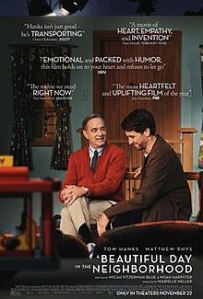
Am I in this? In a retro-futurist kind of 1950s, a television host (Bryan Cranston) introduces a documentary about the creation and production of Asteroid City, a play by the famed playwright Conrad Earp (Edward Norton). The play’s events are depicted in widescreen and stylised colour, while the television special is seen in monochrome Academy ratio. In the play, a youth astronomy convention is held in the fictional desert town of Asteroid City in the American Southwest. War photojournalist Augie Steenbeck (Jason Schwartzman) arrives early to the Junior Stargazer convention with his teenage son Woodrow (Jake Ryan) a would-be intellectual and his three younger daughters Andromeda (Ellie Faris), Pandora (Gracie Faris) and Cassiopeia (Willan Faris) . When their car breaks down, Augie phones his father-in-law, Stanley Zak (Tom Hanks) asking for his help. Stanley, who dislikes his son-in-law, persuades him to tell the children about their mother’s (Margot Robbie) recent death, which Augie had concealed. Augie and Woodrow meet famous and disillusioned actress Midge Campbell (Scarlett Johansson) and her daughter Dinah (Grace Edwards) who, like Woodrow, will be honoured at the convention. Augie and Midge and Woodrow and Dinah, gradually fall in love throughout the play. The other convention participants arrive: five-star General Grif Gibson (Jeffrey Wright), astronomer Dr. Hickenlooper (Tilda Swinton), three additional teenaged honorees Clifford (Aristou Meehan), Shelly (Sophia Lillis) and Ricky (Ethan Josh) and their parents J.J.(Liev Schreiber) Sandy (Hope Davis) and Roger (Stephen Park), a busload of elementary-school children chaperoned by young teacher June Douglas (Maya Hawke) and a cowboy band led by singer Montana (Rupert Friend). A local motel manager (Stephen Carell) provides everyone’s accommodations. Gibson welcomes the attendees at the Asteroid City crater where the teenagers are to receive awards for various inventions. A UFO suddenly appears above the crater; an alien (Jeff Goldblum) emerges and steals the remnant of the meteorite that created the crater. Augie photographs the alien. Gibson, with instructions from the president, places the town under military quarantine, and everyone is subjected to medical and psychiatric examinations. Meanwhile, a romance blossoms between Montana and June, who assure the students that the alien is likely peaceful. The Stargazer honourees use Dr. Hickenlooper’s equipment to attempt to contact the alien. Tricking the guard watching the pay phone, Ricky calls his school newspaper to relay the quarantine details and cover-up to the outside world … They’re strange, aren’t they, your children. Compared to normal people. What is this, exactly? A faux-documentary about a play about a 1950s junior stargazer convention in the Southwest. After that indigestible meta-in-joke construction is absorbed, what is this – exactly? The latest Wes Anderson production is more ironic with flatter backdrops than usual, presumably to (ironically) play on the flatness of the desert itself with the theatrical sets, the drama is only truly enlivened by two performances, those of Cranston (primarily in black and white) who breaks the fourth wall by intruding on a scene in colour, and Hanks, appropriately whose charisma warms up a setting that is paradoxically stifling in the desert heat – well, as the film within the play within the documentary. I don’t understand that emotion. I’ve played it, of course. It’s difficult to know where to look but as a dramatic rule, when in doubt, follow the emotion, which leads back to the three delightful little girls who learn their mother has died and are determined to give her a funeral in the dust which their estranged grandfather (Hanks) eventually commits to performing even if the kids call themselves witches. I still don’t understand the play. There is probably a bigger point being made about political theatre with a Kazan-like narcissist director Schubert Green (Adrien Brody) leading the TV production and a needy self-conscious Methody movie star (Johansson) who, accompanied by that giant bottle of Chanel No. 5, can only be a parody Marilyn but this is ultimately confused. It’s not entirely unlikeable, not with those triplets, but it’s not very funny either. A real curate’s egg of shallow smugness from a story by those arch space cadets Anderson and Roman Coppola. You can’t wake up if you don’t fall asleep
